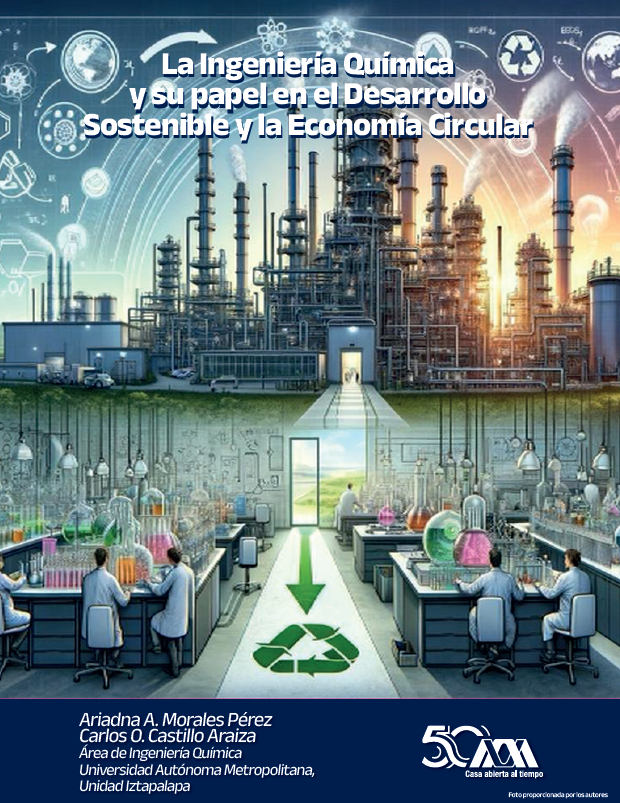La Ingeniería Química y su papel en el Desarrollo Sostenible y la Economía Circular
Abstract
Chemical Engineering is nowaday positioned as an essential discipline for designing processes with a multiscale and interdisciplinary approach, following a model of Sustainable Development (SD) in economic, environmental, energy, and social terms. This article aims to elucidate the importance of Chemical Engineering in achieving the Sustainable Development Goals (SDGs) by applying the principles of green chemistry and circular economy. The article provides a brief overview of what Chemical Engineering is, its history, and paradigms since its inception in the 19th century, with a focus on research areas in the Chemical Engineering at the Universidad Autónoma Metropolitana, Iztapalapa Unit (UAM-I). Key research topics in Chemical Engineering include biofuel production, CO2 storage and transformation, water pollutant treatment, energy vector production, and renewable energy storage. The article highlights research conducted in two of its laboratories: the Laboratory of Water Analysis (LWA) and the Laboratory of Catalytic Reactor Engineering (LCRE). Finally, it discusses the future challenges for Chemical Engineering, emphasizing the need to design chemical and biological processes following green chemistry principles and a circular economy model to meet the SDGs.
Downloads
References
SDSN México. (2020). Red SDSN México. Recuperado de https://sdsnmexico.mx/
Stahel, W., & Reday-Mulvey, G. (1976). Jobs for Tomorrow: The Potential for Substituting Manpower for Energy. Report to the Commission of the European Communities (now European Commission), Brussels. Brussels: Commission of the European Communities.
Anastas, P. T., & Warner, J. C. (1998). Green Chemistry: Theory and Practice. Oxford University Press.






